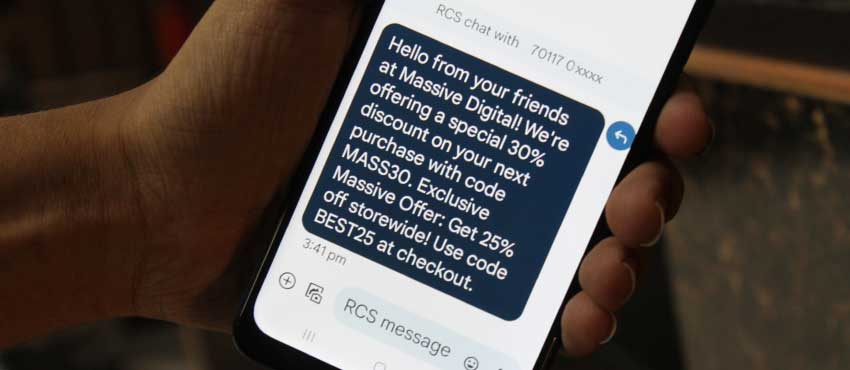Ensure the Reliability and Security of my Bulk SMS Messages
Ensuring the reliability and security of your Bulk SMS messages involves implementing several measures to protect the integrity, confidentiality, and availability of the messages. Here are some important steps to consider:

-
Choose a reputable SMS service provider:
Select a trusted and reliable SMS service provider that has a good track record of delivering messages accurately and securely. Research and compare different providers based on their reputation, customer reviews, security features, and reliability.
-
Secure communication channels:
Ensure that the communication channels between your system and the SMS service provider are encrypted using secure protocols such as HTTPS. This prevents unauthorized access and eavesdropping on the messages during transmission.
-
User authentication and access control:
Implement robust user authentication mechanisms to control access to your SMS platform. Use strong passwords, multi-factor authentication, role-based access control, and other security mechanisms to ensure that only authorized personnel can send or access the SMS messages.
-
Message encryption:
If you need to transmit confidential information via SMS, consider encrypting the content of your messages. Encryption ensures that even if the messages are intercepted, the content remains unreadable to unauthorized users. You can use end-to-end encryption techniques or encrypt specific parts of the message.
-
Secure storage:
If you store SMS messages on your system, apply proper security measures to protect the stored data. This includes encryption of the stored messages, regular backups, and access controls to prevent unauthorized access.
-
Data privacy and compliance:
Ensure that you comply with relevant data protection regulations, such as the General Data Protection Regulation (GDPR) or local data privacy laws. Obtain proper consent from recipients before sending them SMS messages and handle personal data in a secure and privacy-conscious manner.
-
Monitor and log activities:
Implement logging mechanisms to track user activities on your SMS platform. Monitor for any suspicious or unauthorized access attempts, and regularly review the logs to identify and investigate any potential security incidents.
-
Regular software updates and security patches:
Keep your SMS platform and any associated software up to date with the latest security patches and updates. This helps address any known vulnerabilities and ensures that your system remains secure against potential threats.
-
Employee training and awareness:
Educate your employees about best practices for handling SMS messages securely. Train them on how to identify and report potential security risks, such as phishing attempts or suspicious activities, to prevent unauthorized access to the system.
-
Test and audit your system:
Regularly conduct security assessments, penetration testing, and vulnerability scans to identify any weaknesses in your SMS platform. Address the identified issues promptly and take necessary measures to mitigate risks.
Schedule SMS messages to be sent at a later time or date with Bulk SMS
Yes, most Bulk SMS service providers offer the functionality to schedule SMS messages to be sent at a later time or date. This feature allows you to plan your marketing campaigns in advance and ensures that your messages reach the recipients at the desired time. Here's how the scheduling process typically works:

-
Select the desired sending time: When composing your SMS message, you will usually have an option to choose the specific date and time when you want to send message. This can be done through a user-friendly interface provided by the Bulk SMS platform or through an API integration if you are using a custom solution.
-
Timezone consideration: Take into account the time zone of your target audience when scheduling the message. If you have recipients in different time zones, you may need to segment your list or schedule multiple campaigns to ensure that the messages are delivered at an appropriate time for each region.
-
Scheduling options: Bulk SMS platforms often provide various scheduling options to suit your specific needs. These options may include one-time scheduling, recurring scheduling (e.g., daily, weekly, monthly), or even specific triggers based on events or user actions. Choose the option that aligns with your marketing strategy.
-
Message queue and delivery: Once you have scheduled the SMS message, it is added to a message queue within the Bulk SMS system. The system will then process the queue and deliver the messages according to the scheduled time. It's important to note that the actual delivery time may vary slightly due to factors like network traffic or system load.
-
Confirmation and monitoring: After scheduling the SMS messages, the Bulk SMS platform usually provides a confirmation or notification to let you know that the messages are scheduled successfully. You can also monitor the status of your scheduled messages to ensure they are processed and delivered as intended.
-
Time-sensitive campaigns: For time-sensitive campaigns or announcements, it's crucial to carefully plan the scheduling to ensure the messages reach the recipients on time. Consider factors such as the recipients' availability, their time zone, and any specific events or deadlines related to your campaign.
-
Editing or canceling scheduled messages: Many Bulk SMS platforms allow you to edit or cancel scheduled messages before they are sent. This gives you flexibility in case you need to make last-minute changes or adjustments to your campaign.
Conclusion:- Scheduling SMS messages in advance offers several benefits, including the ability to streamline your marketing efforts, maintain consistency in your messaging, and reach your audience at the optimal time. It also allows you to focus on other tasks while the system automatically sends the messages according to your specified schedule.